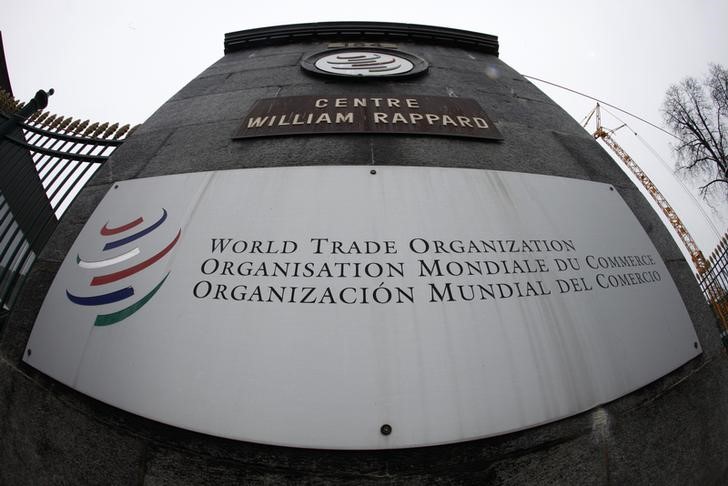By David Ljunggren and David Lawder
OTTAWA, Oct 25 (Reuters) - Senior officials from 12 countries gathered in Canada on Thursday for talks to find ways of reforming the World Trade Organization and to address U.S. grievances which are threatening the body's future.
The administration of U.S. President Donald Trump is blocking appointments of WTO judges and has threatened to pull out of a grouping designed to ensure a rules-bound global trade system. is clear the WTO is facing serious challenges," Canadian Trade Minister Jim Carr said in opening remarks to a one-day meeting that also groups the European Union, Mexico, Japan, Brazil, Australia and seven other countries.
Absent from the meeting are the United States and China, whose escalating tariff war has thrown the future of the 23-year-old trade body into doubt.
Carr said the meeting was aimed at starting a conversation about possible solutions using a "bottom up approach."
He told Reuters before the meeting that Washington and Beijing were not invited because, "it only makes sense that you start with people who are more rather than less likely to land on some consensus items."
Delegates will discuss proposals from Canada and the European Union, including boosting the number of WTO judges and dealing with log-jams in the body's dispute settlement system.
They also will discuss rewriting trade rules for industrial subsidies, state-owned firms and technology transfers, potentially addressing some of Washington's complaints that WTO rules have given an unfair advantage to China.
Australian Trade Minister Simon Birmingham said he wanted the meeting to demonstrate enough progress to make clear that many countries were determined to maintain a rules-based system.
"I would hope that type of momentum is then seen by, for example, the U.S., as a positive demonstration that other nations hear their concerns about the way the WTO hasn't been working," he told reporters on Wednesday.
Jennifer Hillman, a former WTO appellate judge who is a Georgetown University law professor, said much could be gained from participants' efforts to reach consensus.
"If they can, it obviously puts pressure on the U.S., or China or both to figure out whether there's any part of this package that they can live with," she said in an interview.
Stephen De Boer, Canada's ambassador to the WTO, said earlier this month that members "need to be realistic about how quickly this might happen and where it might lead us".
